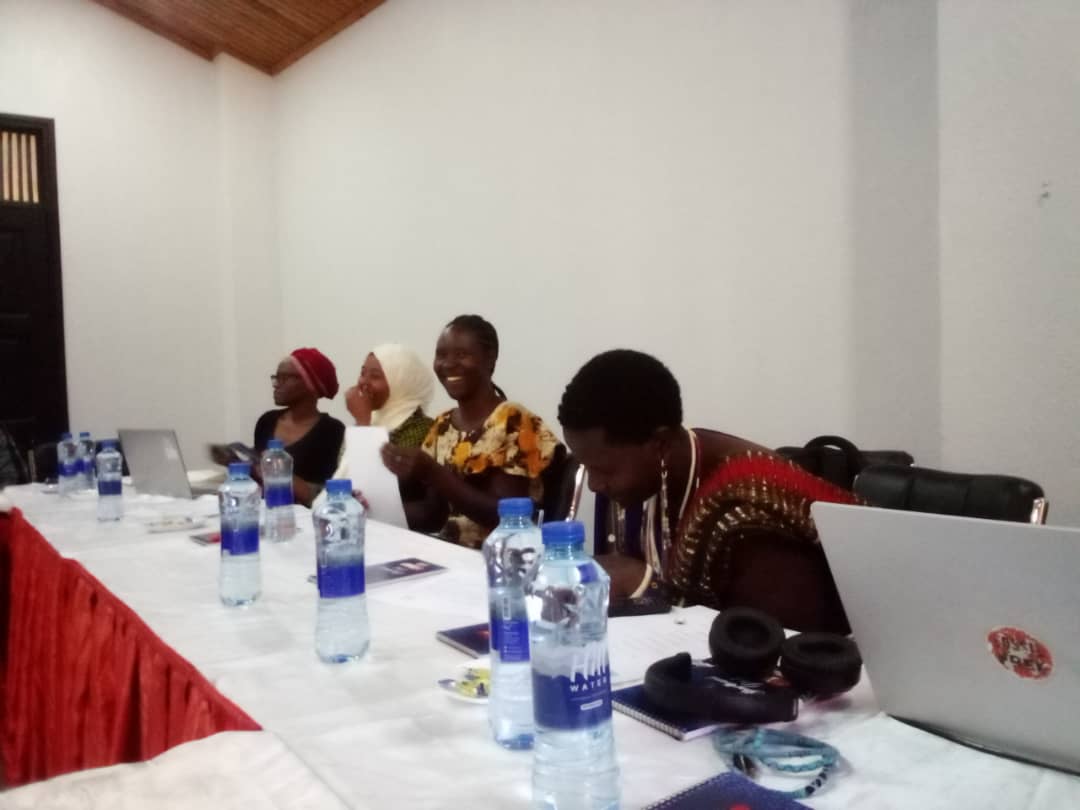
Published: OCTOBER 17, 2022
Changing weather patterns challenge fishers, farmers and pastoralists in communities. Suddenly the rainfall is not reliable anymore. The rain season maybe starts late, or stops early, making it difficult for farmers to plant as the where used to. Winds are suddenly blowing differently, exposing fishers to dangerous weather on the sea. Also fishing grounds are shifting leaving fishers insecure about how to sustain their traditional fishing habits. Pastoralists struggle to find grassland and can’t plan their nomadic routes as they use to do because they find pasture land dried out. This results in economic, loss of livelihood opportunities, food insecurities and other hardships if smallholders can’t react, prepare and adapt to the changing weather patterns.
To adapt to changing weather patterns it is key to understand them. Seasonal weather forecast can help smallholders for prepare, but only when they learn to interpret and understand them. In a conference we collected challenges and best-practices connected to interpretation of seasonal forecasts. We explored what it needs to break down the seasonal weather forecast into actionable information for smallholders. Together we collected guiding principles for stakeholder on community and district level to support smallholders in interpretation of seasonal weather forecast. As part of our learning journey we interpreted hands-on the recent seasonal forecast and discussed how the predict weather potentially could impact livelihood activities. Representatives from Lushoto, Pangani, Chalinze and Bagamoyo reported how there livelihood activities in farming, fishing and livestock keepings are depended from the weather. The Tanzanian Meteorology Authority (TMA) helped us to understand and contextualize the seasonal forecasts. What does it mean when rain below average is predicted?
In small groups we reviewed the recent seasonal forecast and discussed recommendations for smallholders, how the should react and prepare for it. Together we drafted messages that are clear and understandable for end users as farmers, fishers or pastoralists. We learnt how to interpret a technical, scientific forecast and communicate it in way that is understandable for smallholders. After the conference stakeholders have now a clear understand of the upcoming rain season and how to prepare for it. We will disseminate the insights and recommendations over our SMS-system to over 5.000 smallholders in Lushoto, Pangani, Chalinze and Bagamoyo. The process in which we developed messages for smallholders can be known a best practices that informs a guideline for seasonal forecast interpretation. A guideline could help that forecast become understandable and actionable so that smallholders can make climate-smart adaptation discissions.
Often weather forecasts are not sufficient localized and downscaled. Farmers want to know when it rains in there village but forecast currently only are downscaled until district level. To close this gap traditional forecasters can help to understand local weather better. Traditional forecaster rely on observation of nature to predict weather patterns. Currently it is still a challenge to combine scientific forecast and traditional forecasts. In the conference we discussed with stakeholders how to better integrate indigenous knowledge into weather forecasts and their interpretation. Tools like seasonal calendars can help to get a common understanding and form a basis to discuss current weather trends and their potential impacts together.
The TMA analysis in it’s seasonal weather forecast for October to December (Vuli) predicted weather trends and there impacts. The vuli rains are expected to be below normal with a late onset according to TMA. The distribution of rain is expected to be irregular and prolonged dry spells are expected by TMA to be probable. In general the temperature will be warmer than usual. TMA states that this can potentially lead to soil moister defict over most areas , resulting In challenges for farmers and pastroalists. Landuse conflicts could be triggered. Additionally lack of rainfall could limit access to safe water and may trigger disease outbreak. Therefore preparation in Health sector and initiatives to secure access to clean water are relevant to prepare for this potential impacts.
TMA advise farmers to practice timely planting, plant early maturing and drought tolerant crops such as cassava, sweet potatoes, sorghum and legumes. Pastoralists are advised by TMA to conservate and store water and animal feeds. Explore the full forecasts by TMA here: https://www.meteo.go.tz/weather_forecasts/seasonal-weather-forecast
